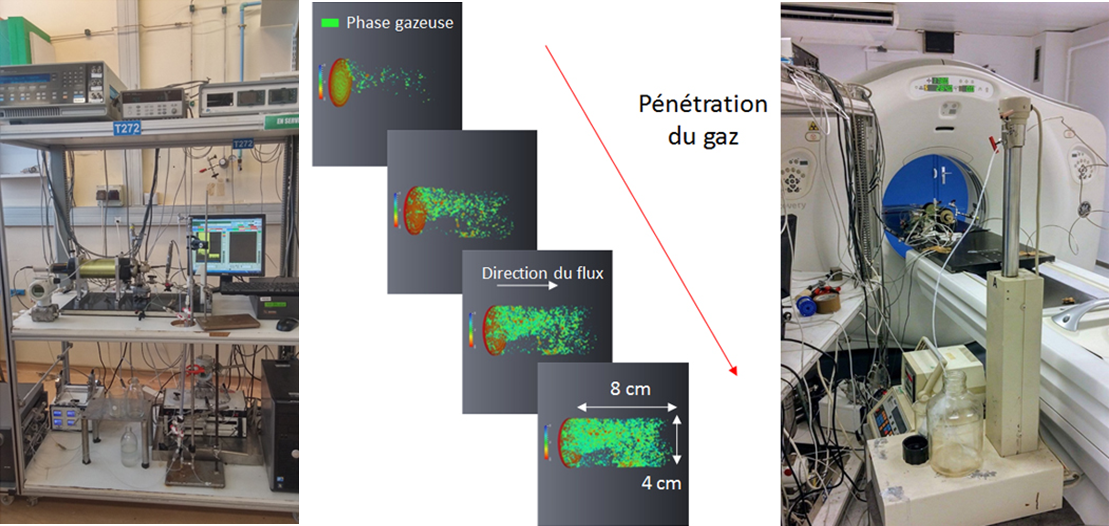Over the past ten years, IFPEN has been conducting research on the geochemical monitoring of the geological storage of CO2, in order to gain a better understanding of the natural water flows that may be impacted by any leaks in the unsaturated zone (UZ)a. IFPEN was also a partner in two ADEME projectsb that led to the validation of a warning concept based on natural tracers associated with CO2 (1).
Adrian Cerepic, who coordinated these two projects, was a scientific visitor at IFPEN between 2014 and 2016. He worked with Bruno Garcia (Geosciences Division) on reservoir rock characterization using electrical measurements to determine, in real time, the petrophysical parameters required to characterize the surrounding rock. This research led to a methodology and the development of a unique process for determining and monitoring, in real time, the relative permeability of a porous medium, based on electrical measurements and considering geochemical interactions, all using scanner imaging (figure).

The two researchers also co-supervised a thesis with a significant impactd in this field(2).
Today, the partnership continues via the ADEME “Aquifer-CO2 Leak 2019-2023” project to monitor the evolution of a CO2 plume and associated tracers, in
the UZ but also in a subsurface aquifer. A methodology incorporating geochemical and geo-electrical measurements, as well as a real-time monitoring technology, will be developed and validated on a pilot sitee.
a - Section of the ground or underground located at the interface between the outermost layer (pedosphere) and the groundwater layer.
b - CO2-Vadose (2009-2013) and DEMO-CO2 (2013-2016), led by the University of Bordeaux.
c - Professor at ENSEGID (graduate school of environmental, geological and sustainable development engineering).
d - Three articles in peer-reviewed scientific journals and two patents.
e - Saint-Émilion pilot site.
(1) B. Garcia, P. Delaplace, V. Rouchon, C. Magnier, C. Loisy, G. Cohen, C. Laveuf, O. Le Roux, A. Cerepi. International Journal of Greenhouse Gas Control, vol. 14, (2013)
(2) A. Chérubini, The use of spontaneous and induced polarization methods for the detection of CO2 in porous carbonate media. Thesis defended on 25 March 2019.
Scientific contact: bruno.garcia@ifpen.fr






